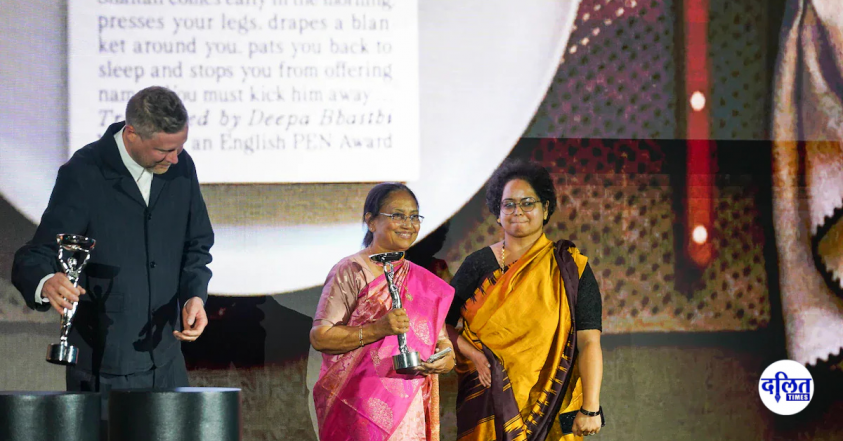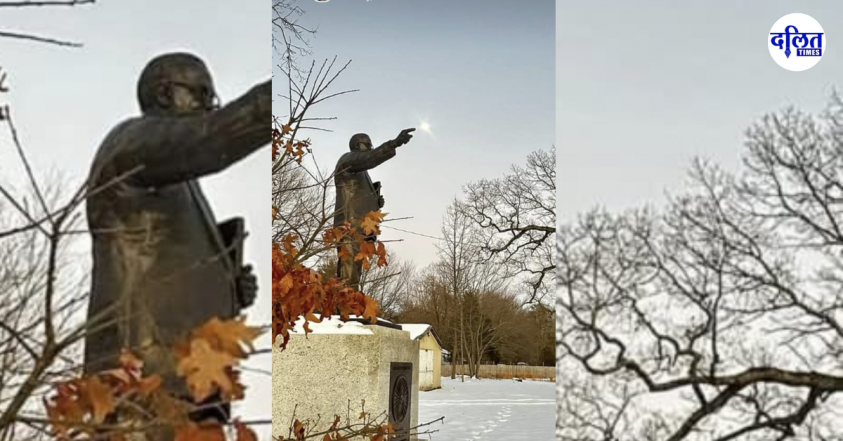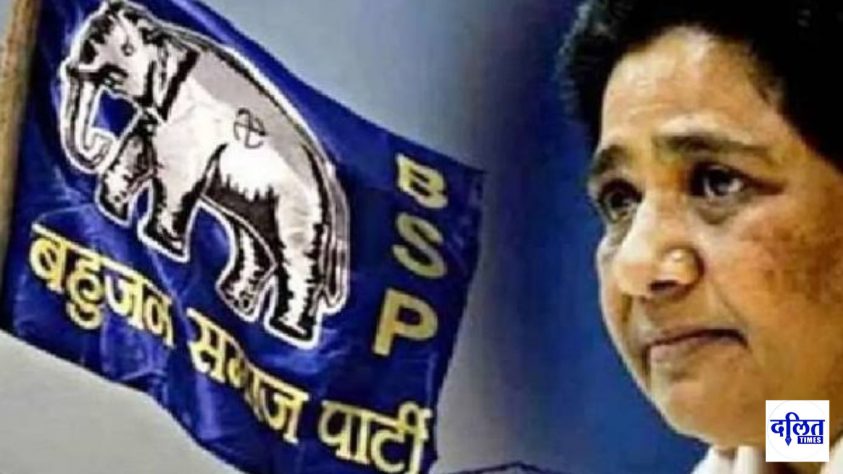The world of literature lit up with a transformative moment: Banu Musthaq, a writer, activist, and lawyer, became the second Indian author—and the first from Karnataka—to win the International Booker Prize. Her collection of short stories, Heat Lamp, a deeply poetic and politically resonant work, emerged as the first Kannada-language book ever to receive this global honor. The prestigious £50,000 prize, awarded jointly to Musthaq and her translator Ananya Ranganna, has not only spotlighted a singular literary voice but also marked a triumph for linguistic diversity and radical imagination in global literature.
The Power of Language, The Language of Power
At the heart of this celebration lies a profound affirmation: languages from the margins, too long excluded from the global literary marketplace, are not only alive and flourishing—they are capable of reshaping world literature. Kannada, a classical Indian language with a rich literary history, finds its global affirmation in Heat Lamp. This is more than a moment of recognition—it is an opening.
The International Booker Prize has traditionally favored major world languages or works mediated through more ‘mainstream’ Indian tongues. Banu Musthaq’s win disrupts this pattern. It speaks to the power of regional languages—often considered “vernacular” in colonial or Savarna academic registers—to narrate, document, and dream in ways that dominant languages cannot.
This is not merely a literary milestone. It is a political statement. In a world increasingly shaped by authoritarian populism and linguistic homogenization, Musthaq’s win is a testament to the survival and brilliance of the polyphonic, the plural, and the profoundly local.
Who is Banu Musthaq?
For those unfamiliar with her work, Banu Musthaq is far more than a literary figure. She is a torchbearer for the unheard—a frontline lawyer defending the rights of women, Dalits, Adivasis, and queer people in courts across India, and a fearless voice against majoritarianism. Born in Kalaburagi (Gulbarga), a region with a strong Sufi, Bhakti, and anti-caste literary lineage, she grew up amid stories, struggles, and solidarities.
Her early activism centered around defending survivors of sexual violence, fighting for land rights in the Deccan plateau, and working with marginalized communities in Karnataka. Her legal practice and fieldwork soon found their way into her literature—each short story in Heat Lamp is a universe of the lived realities of the oppressed. These are not just “fictional” tales; they are court transcripts rewritten as poetry, testimony reimagined as prose, and trauma narrated with tenderness.
Banu Mushtaq: A Fearless Voice in Kannada Literature and Social Justice
Banu Mushtaq born in 1948, celebrated for her bold literary and political contributions. Writing primarily in Kannada, she is the author of six short story collections, a novel, a volume of poetry, and an essay collection, with her works translated into Urdu, Hindi, Tamil, Malayalam.

Born into a Muslim family in Hassan, Mushtaq began her schooling in Kannada at the age of eight and quickly demonstrated a remarkable literary flair. Defying societal expectations, she pursued higher education and married at 26. A former journalist with Lankesh Patrike and a brief contributor to All India Radio in Bengaluru, Mushtaq has, since the 1980s, been at the forefront of struggles against fundamentalism and social injustice in Karnataka.
Her advocacy for Muslim women’s right to enter mosques led to a social boycott and threats to her life in 2000. She has also actively opposed Hindutva-led efforts to restrict Muslim access to the syncretic shrine at Baba Budangiri and continues to support the right of Muslim students to wear the hijab in educational institutions. Fluent in Kannada, Hindi, Dakhni Urdu, and English, Banu Mushtaq remains a fearless and uncompromising voice for justice and literary freedom in India.
Heat Lamp: Stories of Fire, Warmth, and Resistance
In Heat Lamp, Musthaq constructs worlds where light doesn’t fall freely—it is contested, stolen, or fiercely protected. The titular story is about a transgender sanitation worker in Bengaluru who installs a cheap heat lamp in her tin-roofed shelter during a particularly cold December. The lamp becomes a symbol of warmth, defiance, and desire in a city built to exclude her.
Another story, “Kannadada Koneya Mele” (At the Edge of Kannada), follows a Dalit poetess in Raichur whose multilingual verses challenge not just caste hierarchies but the very idea of national literature.
The stories are braided with folklore, street slang, courtroom idioms, and old reformist songs—voices of women singing lullabies in prison cells, of landless Adivasi farmers whispering to seeds, of sex workers translating pain into resistance. Translator Ananya Ranganna’s rendering of this world into English is neither reductive nor ornamental. Her translation dances with the original, preserving its soul while reaching new readers.
This is what Max Porter, chair of the 2025 International Booker Prize judges’ panel, meant when he said: “This list is our celebration of fiction in translation as a vehicle for pressing and surprising conversations about humanity.” Banu Musthaq’s fiction doesn’t just present a version of humanity—it interrogates what humanity excludes.
A Win Beyond Borders: Who Gets to Represent “India”?
This victory forces an urgent question: who gets to represent India on the global literary stage?
Historically, India’s representation in English-language publishing has been dominated by Savarna, upper-class writers who often exoticize poverty, caste, and queerness for Western readers. Banu Musthaq’s win ruptures this pattern. She does not write for the white gaze, nor for the elite Anglophone reader. She writes from below—from shared rooftops, unpaved alleys, waiting rooms of district courts, and protest marches.
Her work complicates the idea of “Indian literature.” It reminds us that Indian literature is not just what is written in English, or even what is translated into English—it is what pulses in mother tongues, what is whispered under breath in bastis, and what is etched into walls during revolutions.
“This is not my prize alone. This belongs to every girl who was told her language is too crude, her anger too much, her dreams too political. This is for our heat lamps, the light we hold on to when they try to bury us.” — Banu Musthaq
Literary Ecosystems and the Role of Translation
Let us also reflect on what made this moment possible: the ecosystem of translators, independent publishers, literary activists, and regional writers who keep linguistic diversity alive. Heat Lamp was originally published by Kaadugudi Prakashana, a feminist Kannada-language publisher based in Mysuru, with a mission to amplify voices from the margins.
For years, Banu Musthaq’s work was ignored by English-language publishers. It took literary activists and translators like Ananya Ranganna to insist that these stories deserve global platforms. This win should push us to ask: what other voices have we silenced? What other stories are waiting in the wings, untranslated and unrecognized?
Translation is not a secondary act. It is an act of creation, of expansion, of solidarity. Ranganna’s work ensures that Banu’s voice reaches across oceans without losing its fire.
What This Means for Kannada and Beyond
This victory may become a watershed for Kannada literature and Indian regional literatures more broadly. It sends a clear signal to publishers and literary festivals: the future is not just multilingual—it is anti-caste, feminist, queer, and fiercely political.
Also Read : “No Human Should Be Made to Enter a Sewer”: Manual Scavenging, Law, and the Crisis of Caste
Kannada, one of India’s oldest languages, with its deep roots in Vachana literature and Bhakti resistance, has always offered a powerful critique of Brahmanism and patriarchy. With Musthaq’s win, this critical tradition finds its rightful place on the global stage.
The Politics of Celebration
It is tempting to celebrate Banu Musthaq’s win as a “moment of inclusion.” But that would be inadequate. This is not a story of the establishment embracing the margins. This is the margins demanding space—and taking it.
As we celebrate, we must also interrogate. Will publishing houses now tokenize writers from oppressed communities, or will they change structures of gate keeping? Will literary awards open up to voices that challenge the very systems they operate within? Or will Banu Musthaq be treated as an exception?
True celebration means redistribution of power—not just recognition of talent. It means building institutions where writers like Banu Musthaq are no longer “firsts,” but one among many.

The Other Indian Writers Longlisted for the Booker Prize
India’s growing presence in the International Booker Prize has been marked by powerful voices from its diverse linguistic landscape. Following Geetanjali Shree’s historic win in 2022, Perumal Murugan was longlisted in 2023 for his Tamil novel Pyre, a haunting tale of caste and forbidden love. Rethi Devi, another significant voice, was also longlisted for the International Booker for her raw and lyrical exploration of rural womanhood and resistance, further expanding the global visibility of regional Indian literatures. While not part of the International Booker, Arundhati Roy was longlisted for the main Booker Prize in 2017 for The Ministry of Utmost Happiness, reaffirming her stature as a globally recognized Indian author.
The Future Is Lit From Below
In the glow of Heat Lamp, the world has glimpsed a new kind of literary future—fierce, plural, unapologetically political, and written in the rhythm of real people’s lives. Banu Musthaq’s win is not just a literary achievement—it is an act of liberation. Along with the International Booker Prize in 2025,Banu Mushtaq has received several other prestigious accolades in recognition of her literary brilliance and commitment to social justice. She was awarded the Karnataka Sahitya Academy Award in 1999 and the Daana Chintamani Attimabbe Award, both of which honor significant contributions to Kannada literature. In 2024, the PEN English Translation Award was conferred upon translator Deepa Bhasthi for her English rendering of Mushtaq’s powerful collection Haseena and Other Stories, further cementing Mushtaq’s place as a vital voice in global literature.
It reminds us that the best literature does not comfort the powerful. It makes them uncomfortable. It does not strive for neutrality. It takes sides. And in the light of that small, defiant heat lamp, we know exactly whose side we’re on.



